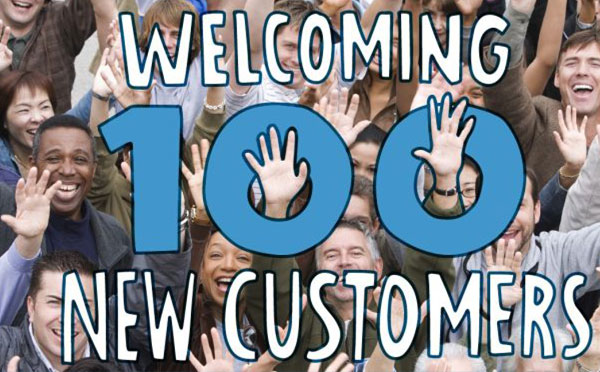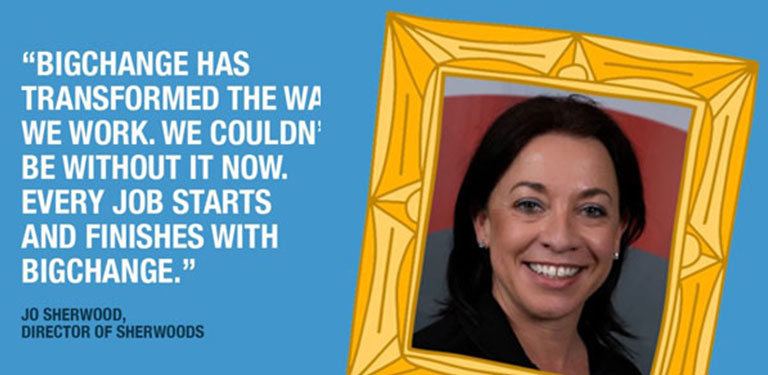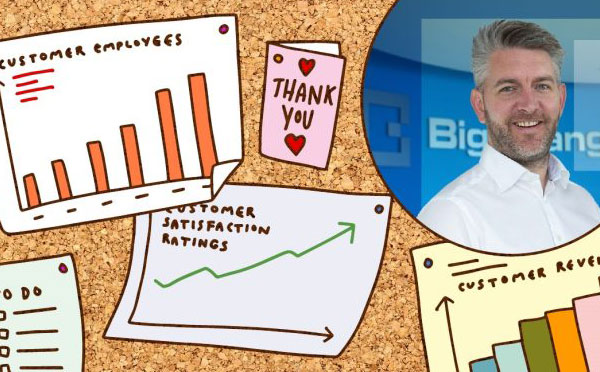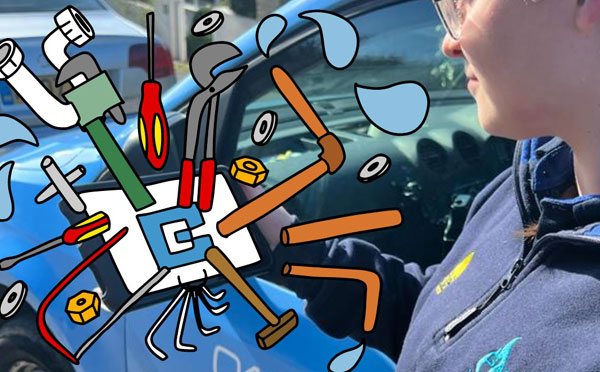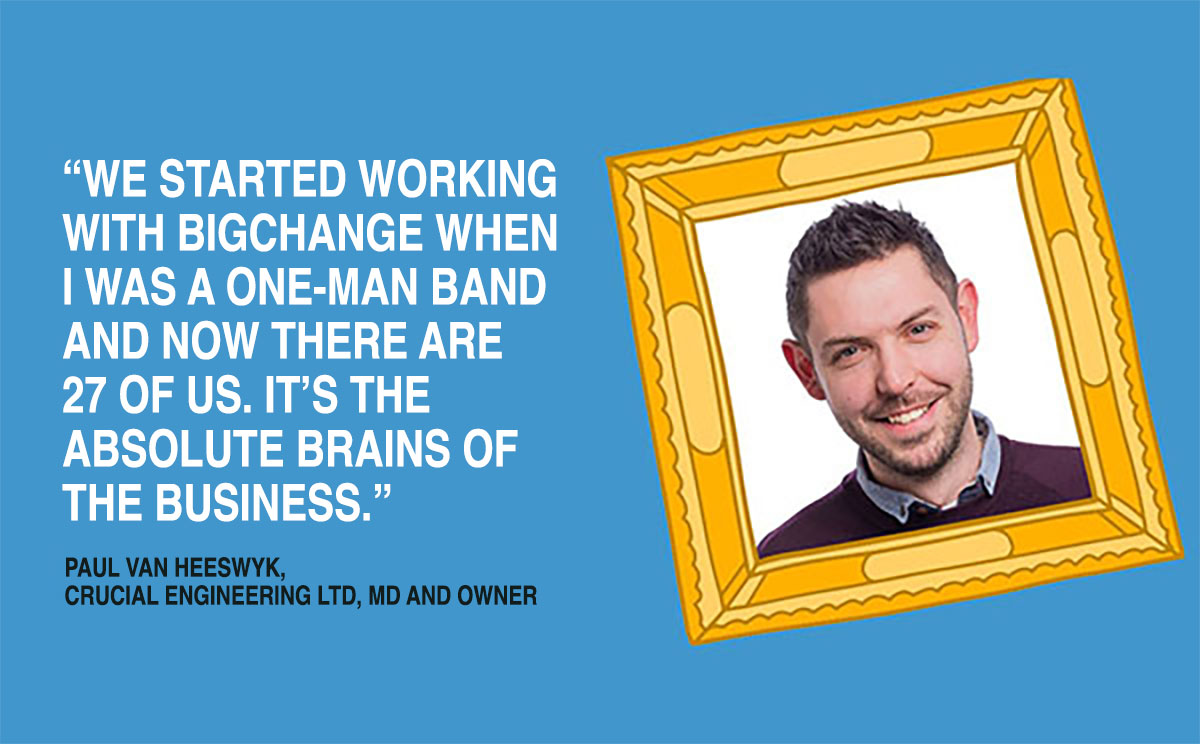If you need to hire equipment to lift, power, generate, move, dig, compact, drill, support, scrub, pump, direct, heat or ventilate, Sunbelt Rentals has it all.
It’s the UK’s biggest plant rental business – and collectively with the States and Canada is one of the two largest in the world.
Part of the Ashtead Group, which is listed on the London Stock Exchange, Sunbelt (formerly A-Plant) has been around since 1947.
Any business that can thrive and grow for 70 years is doing something right, and this month, I’m turning the full beam of my chairman’s spotlight on UK CEO Andy Wright.
Andy is a veteran of the plant rental industry, and has worked at the likes of Aggreko, Lavendon (now Loxam), and Speedy Services.
“Veteran… that makes me feel very old,” he tells me. “But it’s true, I have been in this industry for more than 30 years.”
Moving through the ranks
Andy has had a fascinating career, leaving school at 16 and becoming an apprentice high voltage cable jointer for the Yorkshire Electricity Board.
“I wasn’t very good at it,” he jokes. “I wanted to use those technical qualifications in a new role, so I joined Aggreko in 1989 as a sales engineer in Doncaster.”
The rest, as they say, is history. He worked his way up through the ranks, moving to other businesses, constantly learning, until he joined A-Plant as Chief Operating Officer in 2019.
“The Ashtead Group is the world’s most valuable rental company,” he says. “It was a job I couldn’t turn down.”
Within six months, Andy’s sector experience and down-to-earth leadership saw him promoted to interim CEO. “I don’t go into a darkened room and come up with a strategy a few weeks later,” he says.
“I speak to the team, and find out what they need and what trends they are seeing. Most business strategy is just good common sense.”
Andy and I have this approach in common. My shop floor days with customers and the time I spend with the BigChange team have informed all my strategic decisions over the years.
“That might not be how Elon Musk does it but it works for me,” Andy says.
Taking responsibility seriously
Sunbelt UK currently employs 3,800 people. “We are responsible for a lot of livelihoods,” says Andy. “For every employee, two or three more people depend on us. It’s a responsibility we take very seriously.”
His first big change as CEO of Sunbelt? “When I joined, there were 23 separate operating brands here. Some of the people who work here didn’t know everything we did – let alone our customers.
“So I saw the opportunity to create one joined-up complementary group of services, so that if you needed a generator and a dumper and an aerial work platform, you only have to call one number, not three.
“We now own and manage a billion pounds worth of assets in the UK under one single operational entity.”
This is great advice for any entrepreneur. How can you remove friction for your customers and make it as easy as possible for them to buy from you?
Navigating the choppy waters of the pandemic
Andy also helped Sunbelt navigate choppy waters throughout the pandemic, spotting opportunities for growth where other leaders saw only risk.
Sunbelt was a critical services provider, and able to operate despite the lockdowns, but many construction projects were delayed or cancelled.
He pivoted the business to provide vital services to local councils and the NHS, and Sunbelt built over 80% of the Covid testing sites that sprung up across the UK.
“We’d built temporary infrastructure before but never at that scale,” says Andy. “That experience has helped us move into other end markets, like government projects and events.”
Sunbelt has been a BigChange customer for more than two years now. Andy credits the technology with driving record efficiencies in the business. “The impact was significant,” he says.
“BigChange has quickly become the way we do things around here, and we’re seeing great benefits in terms of the efficiency of our logistics and how we allocate work.”
Andy Wright, CEO of Sunbelt Rentals
Looking after your people
Andy’s guiding principle throughout his career has been to look after his people.
“I focus on just three things. I look after our people and help them be the best they can be. I look after our customers and deliver a world-class experience. And we do all that as one team.
“If we manage that successfully, profit will follow. Too many businesses think about making a profit first but we care about being a long-term, sustainable business that we can all be proud of.”
Andy’s approach to leadership is simple but very powerful.
“I treat people the way I want to be treated, and I do my best to clear obstacles out of their way so they can do their jobs to the best of their ability.
“This approach has always worked for me. When I was young, someone told me that as a leader, you get the people you deserve. If you trust people and work hard for them, they will do the same thing for you.”



